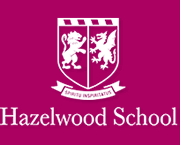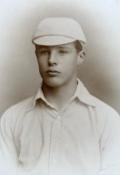
War Memorial
| Richard Haynes TWINING | |
|
2/5th Battalion Queen’s (Royal West Surrey) Regiment Date of birth: 3rd November 1889 Date of death: 3rd January 1979 Died aged 89 Unknown |

|
| Richard Haynes Twining was born at 11 Portman Square, Marylebone in London on the 3rd of November 1889 the second son of Herbert Haynes Twining, a banker, and Louisa “Lulu” Caroline (nee Keating) Twining of 48 Ennismore Gardens, Knightsbridge in London. He was christened at St Mary Magdalene's Church, St Pancras on the 15th of December 1889. He was educated at Hazelwood School until July 1903 where he was a member of the 2nd Football XI in 1899 and was a member of the Choir. He was a member of the Cricket XI in 1900, 1901, 1902 and 1903 when he was Captain. The school magazine wrote the following on his 1900 cricket season: - "A tiny sportsman, and already one of the best and smartest fieldsmen we have ever had, and will make a bat when he is as big as one." They wrote of his 1901 cricket season: - "Was absent half the term and never quite realised his last year's promise. Works hard in the field and is one of the best throwers, but apt to drop a catch." Of his 1902 cricket season they wrote: - "A splendid field anywhere, and often showed what a fine bat he would be if only he would grow." They wrote of his 1903 cricket season: - "Captain. The best bat for his size that Hazelwood has produced. If he had only the inches of Browne or Payne, he would undoubtedly be a star of the first magnitude, possessing as he does a beautiful style and every stroke that a boy can be expected to have. A very fair wicket-keeper, but we like him better in the long field, and he can bowl a bit." He was Captain of the Football XI in 1902 when the school magazine wrote of his season: - " (Centre forward) - A very clever little player, possessing considerable pace, trickiness and resource; has formed an admirable pivot for the attacking quintette, is unselfish and a brilliant marksman with either foot." On leaving the school the magazine wrote of him: - "...goes to Eton. We have little hesitation in describing him as the best all round sportsman for his size we have yet produced. Captain of both Elevens, Champion Racket, an excellent athlete, probably the best golfer, a member of the choir, and useful on the stage." He went on to Eton College where he was in H.F.W. Tatham’s House from September 1903 to July 1909. He was elected as President of the Eton Society in 1909 and was a member of the Cricket XI from 1907 to 1909, being appointed as Captain in 1909. The following appeared in the Observer newspaper of the 27th of June 1909:- “Where would Eton have been without its Captain? Twining kept wicket with the skill and quickness of a Macgregor or Blackham; he managed his bowling with the sagacity and judgement of an “old Parliamentary Hand”; and he and Hollis on the first day batted in the manner of the classics". He was elected as President of the Eton Society in 1909. In 1909 he went on to Magdalen College Oxford where he was a member of the University Cricket XI from 1909 to 1913, winning a “Blue” for cricket in his first summer. He and was appointed as Hon. Secretary of the Cricket XI in 1911 and was appointed as Captain in 1912. He was a member of the University Football XI in 1910. He served as a Private in the Oxford University Officer Training Corps. While at Oxford he became a Freemason and was admitted as a member of the Apollo University Lodge on the 13th of February 1912. On leaving Oxford he went to work as a stock broker. From 1910 he played county cricket for Middlesex and played for the MCC from 1914. Following the outbreak of war he tried to enlist in the Inns of Court Officer Training Corps but due the numbers of men applying he was placed on a waiting list. Instead, he applied for a commission in the 5th Battalion Queen’s (Royal West Surrey) Regiment on the 28th of September 1914 when it was recorded that he was five feet eight inches tall. He was commissioned as a 2nd Lieutenant in the 2/4th Battalion Queens (Royal West Surrey) Regiment on the 18th of October 1914. He was promoted to temporary Lieutenant on the 27th of November 1914. He was married on the 11th of May 1915 to Ellen Irene Rosalind (nee Tweed) at St Paul’s Church Knightsbridge. The news of the death in action of his brother Cecil was received on the morning of the wedding. They had a son Richard Cecil, born on the 22nd of March 1916, and a daughter Shirley. They lived at 132 Lexham Gardens, London W8. In April 1915 the 2/4th and the 2/5th Battalions Queens (Royal West Surrey) Regiment were merged together for war service, each contributing officers and men to a new battalion which was known as the Queen's Composite Battalion. On the 17th of May 1915 he was promoted to temporary Captain with the 2/5th Battalion of his regiment. He embarked with his battalion at Devonport on board the SS Ulysses on the 28th of July 1915, landing at Port Said where he was left in command of 175 men as reinforcements for operations at Gallipoli. He and 150 of his men arrived on the peninsula as replacements on the 22nd of August and joined the battalion, which was in support of 29th Division at Hill 70, at 8pm. He sustained a flesh wound in the knee during the subsequent fighting and was sent to hospital in Alexandria after which he returned home with a severe case of dysentery and spent a long period on crutches. On the 6th of May 1917 he was promoted to Lieutenant with precedence from the 1st of June 1916. On the 5th of June 1918 he was promoted to Staff Captain for service with the War Office. On the 13th of July 1918 he was appointed as a Deputy Assistant Military Secretary and was promoted to Acting Major while so employed. He was mentioned in despatches on two occasions, finishing the war with the 2/5th Battalion at Reigate. He was demobilised at the Officers Dispersal Unit in London on the 26th of February 1919. He resigned his commission on the 30th of September 1921 and retired from the army with the rank of Honorary Major. After the war, he applied to become a Member of the Stock Exchange from the 25th of March 1922. In spite of his lameness, he played cricket again for Middlesex County until 1928, including in the County Championship winning side of 1921. He also played for the Old Etonians as well as the Free Foresters and scored 2,963 first class runs in his career at an average of 22.96. He served on the committee of the MCC in 1933, becoming President in 1964 and served as a trustee from 1952 to 1969. On retiring from this position he was made a Life Vice President, only the second one the club created, the first being Sir Pelham Warner. He was President of Middlesex County Cricket Club from 1950 to 1957 and was Deputy Chairman of the Stock Exchange from 1956 to 1959. His brother, Cecil Francis Harvey Twining 1st Battalion Hampshire Regiment, was killed in action on the 3rd of May 1915 and his son, Captain Richard Cecil Twining 3rd Battalion Welsh Guards, was killed in action on the 9th of April 1943. He died at Kensington. |
|
 | |
| Went on to Eton College |
Back